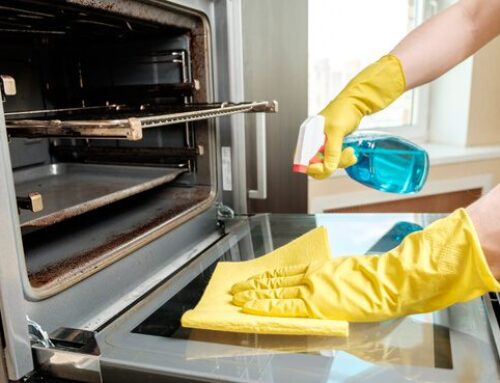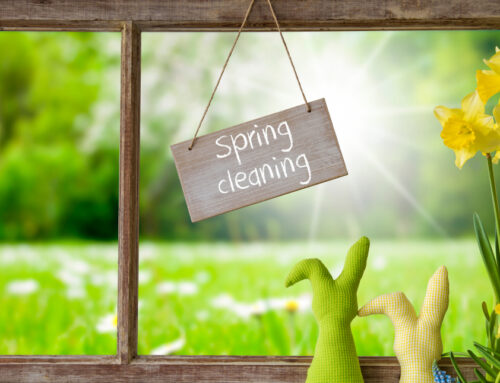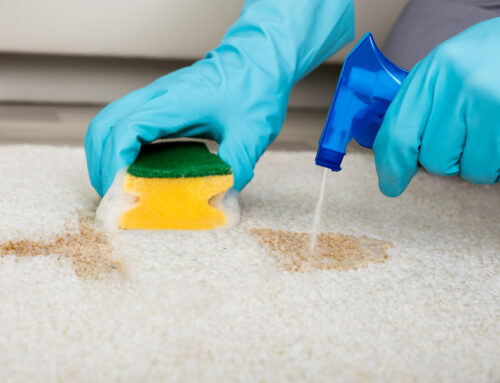Have you ever thought of how dirty your kitchen countertops are?
From chopping raw food to placing shopping bags on the surface, everything you use your counters for introduces harmful bacteria. Even wiping it with a dirty cloth can introduce E. Coli to your tops!
Fortunately, there are plenty of ways to cut down on the germs and keep your kitchen a healthy, safe place to prepare food. We’ve put together our top tips for thoroughly cleaning different types of countertops.
Read on to find out more!
Disinfect Countertops Made of Wood
If you want to get rid of germs in the home but you have wooden countertops, you might be a bit confused. How can you strip the wood of bacteria without ruining the finish? It’s a valid concern as many cleaners are far too harsh on wood and will ruin your stains or varnishes.
Luckily, there is one you can use without any trouble: vinegar! White vinegar is a powerful disinfectant that won’t strip your wood.
You can also mix yours with oil – such as olive oil or linseed oil – to nourish the surface while you clean. Combine one part vinegar with one part oil and pour into a spray bottle. Go over your tops with a dry cloth to remove loose debris before spraying the solution liberally and leaving for five minutes.
Wipe the surface with a dry cloth and leave the counters to air. It may smell a little vinegary for an hour, but it’ll soon clear and you’ll be left with clean, oiled worktops!
It’s also smart to rub your wood down with a suitable oil once every one to two months. This will prevent it from drying. Just be sure to wipe off excess oil to prevent it from attracting dirt and bacteria.
How to Disinfect Granite Countertops
If you have granite kitchen counters, you don’t have to be quite as careful with the cleaners you use. Just avoid anything too abrasive that may scratch the surfaces.
Our cleaning experts recommend creating a bowl of warm, soapy water. Wipe down your surfaces with the water and rinse, before drying with a clean paper towel or cloth.
If you have any stains on your granite, create a thick paste using water and baking soda. Apply to the area and leave it to work for at least eight hours – overnight is usually the best time to do this. Wipe the baking soda off and the stain should be gone.
Cleaning Marble Countertops
To kill germs on a marble counter, use a gentle anti-bacterial spray and leave it to sit for five minutes before wiping with a clean, damp cloth. Dry immediately with a separate clean cloth to prevent any watermarks from forming on the surface. You can also use a pH-neutral washing-up liquid with warm water if you don’t have any antibacterial spray.
To prevent stains, be sure to blot any spills immediately and rinse away with warm water. If you do find a stain on your marble, your best bet is to pay someone to professionally buff the surface. Be sure not to use anything abrasive on your marble surfaces if you’re not experienced with buffing.
How to Clean Laminate Counters
Laminate kitchen counters are by far the easiest to clean. In fact, it’s what they’re known for! You can use almost anything to clean them, including:
- Anti-bacterial spray
- Warm soapy water
- White vinegar and lemon
- Bleach
If using bleach, be sure to dilute it with plenty of water to create a mild solution. Test a small spot first to ensure it doesn’t remove any color from your surface. After cleaning with bleach, rinse thoroughly to keep your surfaces safe to prepare food on.
Be aware, too, that bleach isn’t a super eco-friendly cleaner, so it shouldn’t be used too often. Wherever possible, use anti-bacterial spray instead.
Disinfect Glass Kitchen Counter
Multi-purpose cleaners work well on glass counters. Not only do they kill germs, but they also remove grime and dirt easily. Spray onto a soft cloth first and then wipe down the surfaces rather than spraying directly to reduce the chance of streaks.
Finish by wiping the tops down with white vinegar and a paper towel. This is perfect for removing watermarks and creating shiny, streak-free surfaces!
If you’re dealing with dirt that’s stuck on the glass, use dishwashing liquid and warm water. It’s tougher on built-up grime and will make the work a lot easier.
Cleaning Stainless Steel Types of Countertops
Stainless steel countertops are common in professional kitchens because they’re so hard-wearing and easy to clean, but they’re becoming more common in contemporary domestic kitchens, too. If you have a stainless steel counter, start with an anti-bacterial spray or white vinegar to remove bacteria.
After letting it sit, use a stainless steel cleaner to clear your tops of smudges and marks. To get rid of any rust, create a homemade paste using baking soda and lemon juice. Apply to the affected area and scrub gently to remove the rust, before wiping off with warm water.
Call in the Professionals
If all of this advice for the different types of countertops is confusing you, don’t worry! Our team at Hubbard’s Maid Service can help you, making the task of cleaning your kitchen a whole lot easier. From ridding your kitchen of harmful bacteria to a top-to-bottom cleaning of your whole home, we’re always ready to clean.
If you’d like to learn more or arrange your first cleaning, request a quote with us today and we’ll get back to you as soon as possible.






